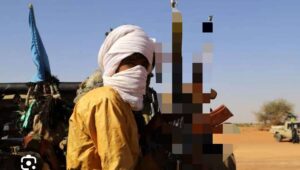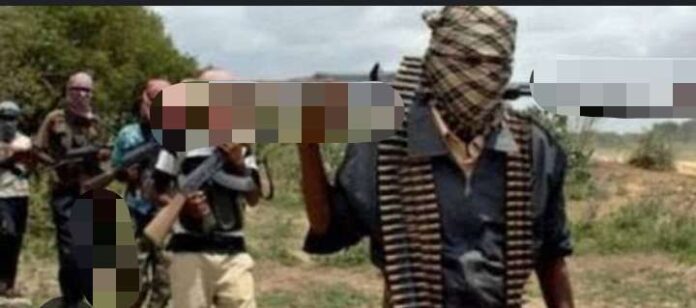In a shocking and brazen act of violence, terrorists disguised in military uniforms have abducted 20 residents from an area near Gwarinpa Estate in Abuja. This incident has sent shockwaves through the community and raised serious concerns about security in the nation’ s capital.
The abduction took place in the early hours of the morning when the assailants, posing as military personnel, stormed the neighborhood. Witnesses reported that the terrorists were heavily armed and moved with precision, suggesting a well- coordinated plan. The attackers deceived the residents by claiming they were conducting a security operation, thereby gaining easy access to homes before the residents realized their true intentions.
The kidnapped individuals include men, women, and children, indicating that the terrorists were indiscriminate in their selection of victims. This has exacerbated fears among the local population, who are now worried about the safety of their loved ones and their own security. The abductors swiftly moved the victims to an unknown location, leaving families and friends in anguish and uncertainty.
Security agencies have launched a manhunt to locate and rescue the abducted residents. The Nigerian Police Force, alongside other security operatives, have intensified patrols and mounted roadblocks in and around Abuja in a bid to apprehend the terrorists. The authorities have also appealed to the public to remain vigilant and report any suspicious activities or persons.
This incident highlights the growing insecurity in Nigeria, where kidnappings for ransom have become alarmingly frequent. While such attacks have been more common in the northern regions of the country, this abduction near Gwarinpa Estate, a relatively secure and affluent area, underscores the expanding reach of terrorist activities.

Community leaders and residents are calling for increased security measures and a more proactive approach from the government to protect citizens and prevent further occurrences. Many are questioning how terrorists could carry out such an audacious operation in a well- guarded part of the capital without detection or intervention from security forces.
The psychological impact on the affected families is profound. Many are grappling with the fear and uncertainty about the fate of their abducted relatives. The community is rallying together, providing support to the affected families, and urging the authorities to expedite their rescue efforts. Social media platforms are flooded with messages of solidarity, calls for action, and updates on the situation as the public follows the developments closely.
The psychological impact on the affected families is profound. Many are grappling with the fear and uncertainty about the fate of their abducted relatives. The community is rallying together, providing support to the affected families, and urging the authorities to expedite their rescue efforts. Social media platforms are flooded with messages of solidarity, calls for action, and updates on the situation as the public follows the developments closely.
The Nigerian government has condemned the abduction and reassured the public that all necessary measures are being taken to secure the release of the abducted individuals. In a statement, the government emphasized its commitment to combating terrorism and ensuring the safety of all citizens. However, critics argue that the government’ s response to the growing insecurity has been inadequate and are demanding more decisive actions.
In recent years, Nigeria has faced significant challenges with insurgency, banditry, and kidnappings, particularly in the northern and central regions. Terrorist groups like Boko Haram and the Islamic State West Africa Province (ISWAP) have carried out numerous attacks, resulting in thousands of deaths and displacements. The security forces have been stretched thin, trying to combat these threats across various fronts.
In recent years, Nigeria has faced significant challenges with insurgency, banditry, and kidnappings, particularly in the northern and central regions. Terrorist groups like Boko Haram and the Islamic State West Africa Province (ISWAP) have carried out numerous attacks, resulting in thousands of deaths and displacements. The security forces have been stretched thin, trying to combat these threats across various fronts.




